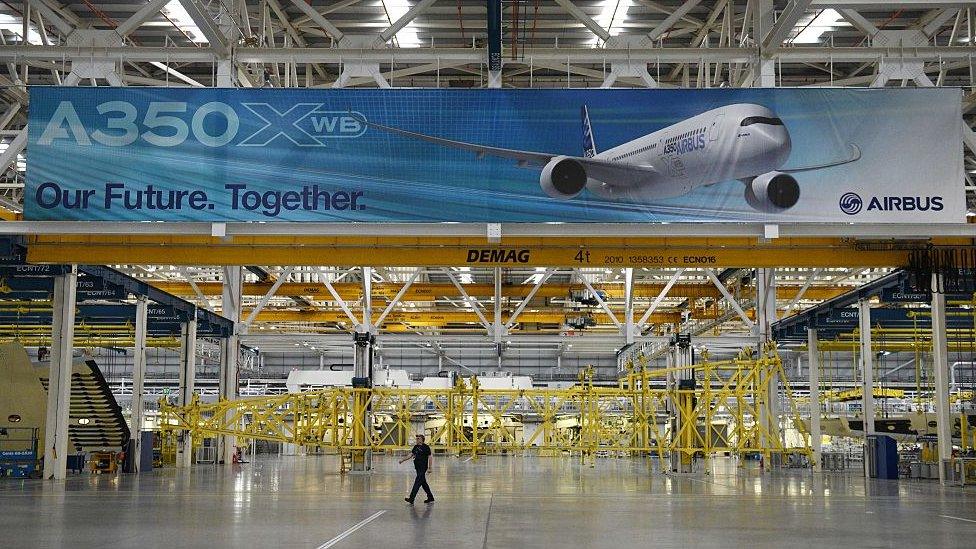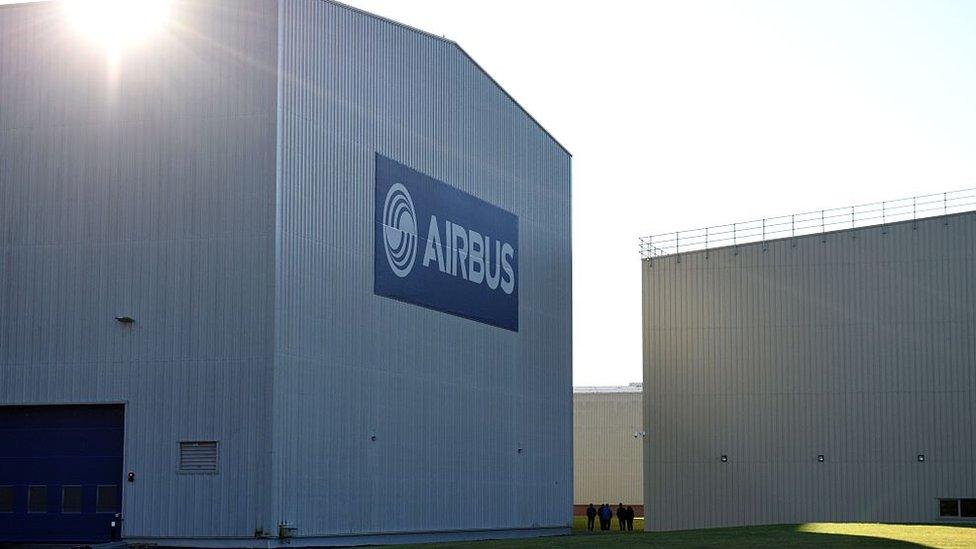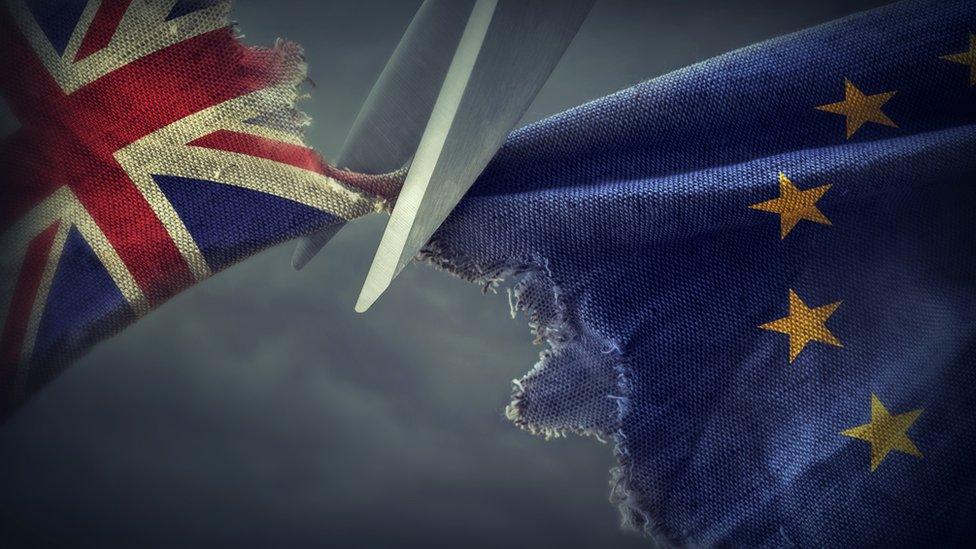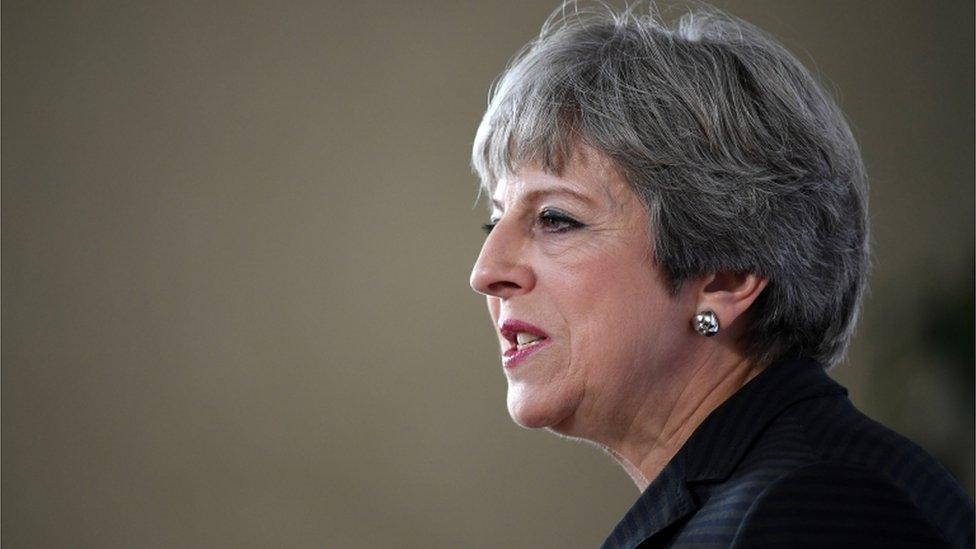Airbus calls Brexit transition deal 'vital' for business
- Published

Airbus in Flintshire employs 6,000 people
It is "vital" the terms of a transitional phase post-Brexit are agreed "as soon as possible", according to Airbus.
The aeronautical company called for a "lengthy" transition period in order to ensure its "competitiveness and productivity continue unimpeded".
Airbus employs 6,000 people at its wings plant in Broughton, Flintshire.
Prime Minister Theresa May has suggested the UK government would like a transition period of about two years.
A transition phase could mean that the arrangement for how the UK trades with the EU currently - in the single market - is maintained ahead of any new deal coming into force.
In written evidence to the Commons' Business Committee, Airbus added that failure to reach a deal with the EU would have "significant consequences" for the company, external.
In January, the company's chief operating officer Tom Williams told MPs that it would be "entering a dangerous phase" if Airbus could not seamlessly move people and products around the EU.
The EU's chief Brexit negotiator Michel Barnier has also said that firms such as Airbus face new "constraints" in moving parts and staff between its European sites.
The firm said at the time it was confident it would "get over" any new restrictions.
In its latest evidence document, the company noted that its employees make about 80,000 trips a year between the UK and the remaining EU countries.
The company said it also exports more than £6bn worth of product into the EU.
It currently relies on the "seamless" flow of goods and people between its sites in the UK, France, Germany and Spain.

Airbus said its employees make about 80,000 trips a year between the UK and other EU countries
Any new visa requirements would "make UK skilled employees more complicated to deal with and make programmes that involve the UK more bureaucratic" affecting the "long-term competitiveness of UK sites," Airbus said in its evidence.
"If costs increase as a result of the UK leaving the EU, this will inevitably impact future UK investment decisions."
The company's warnings about a transition period and a "no deal" scenario comes ahead of a meeting in Downing Street between Mrs May and senior ministers to try to make progress on the stalled Brexit talks.
This "divorce bill" is one of the main reasons for the logjam in negotiations, with the EU saying it will not discuss a new trade deal with the UK until such issues have been settled.
Welsh Government Finance Secretary Mark Drakeford said on Monday that no amount of public money and preparation from ministers in Cardiff would "avoid the harm" to Wales if the UK government fails to reach a Brexit deal with the European Union.
Mr Drakeford said there was nothing the Welsh Government could do to "mitigate the impact" of a "no deal" scenario on Welsh exporters and ports.
But Steffan Lewis, Plaid Cymru AM, said: "The European Union and the European Commission are doing the work to prepare their public services in the event of a no-deal Brexit. Why is the Welsh Government not doing the same?"
- Published21 September 2017

- Published22 September 2017
